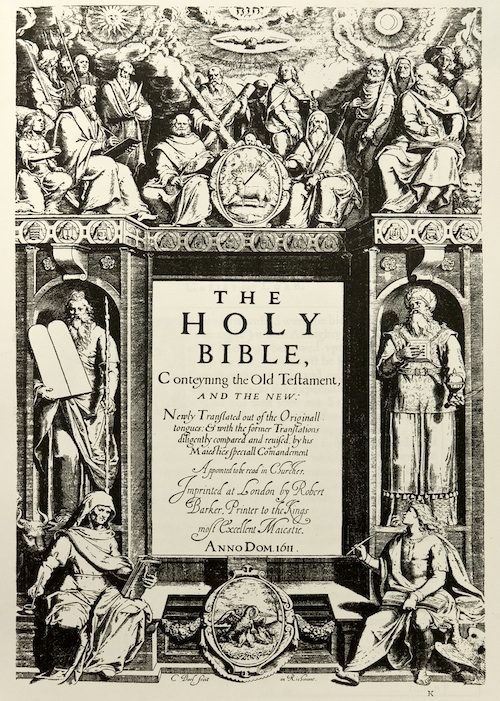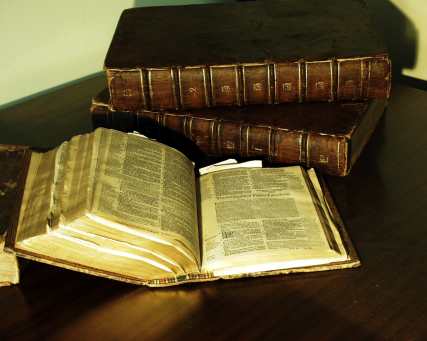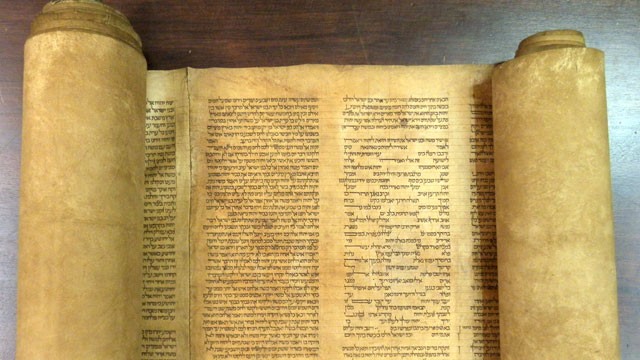“Rev. Dr. Wil Gafney, Associate Professor of Hebrew and Jewish and Christian Scripture and, Chair of the Biblical Area at The Lutheran Theological Seminary at Philadelphia: You’re fired.” Let us pray. (Click here for sermon audio.)
Blessed are you, Holy One our God, Sovereign of the universe, who has chosen faithful prophets to speak words of truth. Blessed are you, Faithful One, for the revelation of Torah, for your servants Miriam and Moses, for your people Israel and for prophets of truth and righteousness. Amen.
Jer 31:33 For this is the covenant that I will make with the house of Israel after those days, says the Holy One of Sinai: I will place my Torah in their midst and on their hearts I will write it; and I will be their God, and they shall be my people. 34 No longer shall they teach one another, or say to each other, “Know the Holy One,” for they shall all know me, from the least of them to the greatest, says the Holy One of Old; for I will forgive their iniquity, and their sin I will not remember any longer. Gafney translation
God has given me notice. And Fr. Shaw too. Every priest, pastor and professor of religion, rabbis and rabbits too – rabbis-in-training, have been informed that our service will no longer be required. One day. One day, things will be different. The world will be different. Folk will be different. Folk will act like they have sense because they will have sense; uncommon sense will be common sense because we all will have it. God will put it in us. All of us who are born into or adopted into Israel – that’s where we come in – God will put God’s Torah in our midst (again) and in our hearts. We will know everything we need to know about everything. If I were preaching this sermon in the seminary there might be a rash of book burning and class cancelling. Who needs seminary or synagogue or bible study or church if God is going to zap us with all knowledge? Who needs the Christian life if God is just going to… “Poof!” and make it all better. Why, I might as well sit down and wait… [I left the pulpit and sat down for a while waiting for God to zap me.]
Hindsight is 20/20. We are some two thousand, four hundred years from the time of Jeremiah and have figured a few things out reading the stories of our spiritual ancestors’ wait for God. And that’s why we have the scriptures, the scriptures that Paul writes to Timothy are: God-breathed and beneficial for teaching truth from error, for correction, for correcting faults and for instruction in righteousness (which is justice). You do know that Paul and Timothy were reading the OT, right? The Only Testament.
 Have you ever heard people talking about the bible like there’s an old covenant that is no longer valid and a new covenant that supersedes and replaces it? That’s not how God works. That’s why we as a church read, teach, preach and pray all of the scriptures. We pray the Ten Commandments in Lent because we know they are still binding on us and a worthy and appropriate place to begin our season of self-reflection and penance. We even may do so in Advent, our little Lent as well, for when we reflect on the gift of Jesus, the Word of God – the Torah of God – made flesh, we don’t throw out any of the covenants or promises that led to him, that he still teaches, preaches and prays through the Holy Spirit.
Have you ever heard people talking about the bible like there’s an old covenant that is no longer valid and a new covenant that supersedes and replaces it? That’s not how God works. That’s why we as a church read, teach, preach and pray all of the scriptures. We pray the Ten Commandments in Lent because we know they are still binding on us and a worthy and appropriate place to begin our season of self-reflection and penance. We even may do so in Advent, our little Lent as well, for when we reflect on the gift of Jesus, the Word of God – the Torah of God – made flesh, we don’t throw out any of the covenants or promises that led to him, that he still teaches, preaches and prays through the Holy Spirit.
Think about that the next time someone says we don’t need the Old Testament, that’s the old covenant, God has given us a new covenant in Christ Jesus. Jeremiah spoke of a new covenant and it’s not in the back of our pews. That new covenant is a new beginning in an old relationship. It is God’s active, guiding, accompanying, leading presence on our journey but we haven’t arrived yet. We are not yet where we shall be but we are on our way. We are also not where we were. We have moved forward. And we are still on our journey.
You see God plays the long game. The revelation of God is ongoing. It is not “Zap!” or “Poof!” Jeremiah speaks of a new or perhaps better, another covenant, but the truth is there were more than two. God made a covenant with Noah and his wife and their children and their families. God made a covenant with Abram and Sarai and their children for all time. God made a covenant with the children of Israel in the wilderness; the tablets with the Ten Commandments were the notarized copy. God made a covenant with David. Through prophets like Isaiah and his disciples, Jeremiah, Ezekiel and Hosea, God made new and renewed covenants with Israel and the earth and even its wild animals so that the lion would be contractually obligated to one day lie down with the lamb.
We Gentiles are also creatures of earth and God’s spirit, beneficiaries of and partners with God. Jesus brought us into the family. The child presented his friends – even his faithless friends to his parent and said they’re part of the family now, ‘kay? And God adopted us because of Jesus. We are heirs to the covenants but must never forget that we are here by grace. And we should be grateful that each of these covenants built on the one before without breaking a single promise, without canceling, nullifying of rejecting the previous covenant because God is trustworthy. God is faithful and just. So we can trust God not to abandon or reject of because God has never abandoned or rejected God’s people – even when holding them at a distance for a while – God has always returned and pursued God’s people like a broken-hearted lover.
For with each covenant God reveals and gives God’s heart, God’s self. That is what Torah is, the heart of God. To say Torah is just Law is to strip it of all its color, texture, detail and fragrance. Torah is most simply the revelation of God. It is all and everything God reveals – teaching, instruction, revelation and yes, law, are all appropriate translations; no single one encompasses all that is Torah. Some of what God reveals is law, but God also reveals relationship and riddles, story and song, genealogy and generosity. Even the first five books of the bible called capital-T Torah have more than law in them. God reveals Godself in the words and Word of Torah. That is why the Torah scroll is the holiest object in Judaism; one that human hands are not fit to touch directly.
So the new covenant and Torah God promises through Jeremiah is more than a scroll or book; it is the presence of God within us:
…this is the covenant that I will make with the house of Israel after those days… I will place my Torah in their midst and on their hearts I will write it; and I will be their God, and they shall be my people. No longer shall they teach one another, or say to each other, “Know the Holy One,” for they shall all know me, from the least of them to the greatest, says the Holy On of Sinai; for I will forgive their iniquity, and their sin I will not remember any longer.
After those days… Our lesson is in the middle of a chapter made all the more complicated by the fact that the book of Jeremiah isn’t remotely in chronological order. It is a jumbled mass of emotion like Jeremiah himself. It is probably made worse by the fact that Jeremiah was illiterate and needed Baruch to write for him. Jeremiah lived through the apocalypse, not the zombie apocalypse but an apocalypse all the same. An apocalypse is devastating destruction on a world-changing, world-ending scale after which things can never be the same. “Those days” were filled with death and destruction, swords and axes, rape and murder, soldiers and mercenaries, burning and slashing. The government and its forces toppled and swept away; the temple toppled and its rubble picked through. Psalm 74 describes the looting of the temple: hatchets and axes splintering the woodwork, the stonework hacked and defaced, the chalices and censors, incense shovels – not spoons – all the vessels and vestments taken as trophies and desecrated.
Look around this sanctuary and imagine. Or remember when the city of Philadelphia bombed its own people. Imagine, remember, the devastation. See, hear, smell the flames engulfing the sanctuary and our homes and schools and businesses and the courts and the government. The police and military dead in the streets, imprisoned, deported. All the educated, literate citizens, business owners and artists and most workers in slave camps in another country. A few like Jeremiah, smuggled into Egypt, the place their ancestors prayed so long – four hundred and thirty years – for them to be delivered from. And here they are, back in Egypt, voluntarily.
After those days… Jeremiah’s prophecy is for after those days. The new covenant is a new start, a do over. It is a promise that the God who brought their ancestors to a good land delivering them from slavery is still their faithful, promise-keeping God. God makes the covenant with them in their days, that they might know that they are still God’s partners; God has not forgotten or abandoned them. God will work with them to bring them home again and restore them.
As before, their community will be governed by their covenant with God, Torah. This time God’s Torah will not be vulnerable to predation, unlike the Ark of the Covenant bearing the tablets inscribed by the finger of God which disappeared during the Babylonian conflagration. This time the Israelites would not be dependent on scrolls that could be burned, desecrated or stolen. God is preparing Israel for the world in which they would live, one which would not be free of conflict, but one in which God would always be with them and God’s word, God’s Torah would always be available to them.
And for those who were blaming themselves or others in their communities for the catastrophes, God promised forgiveness of sin, forgiveness and forgetting. No generational curses here. Even if their ancestors sinned and they did, even if they sinned and they did, God forgives and forgets. Folk like to say “God knows my heart,” usually to explain away something ungodly. But God says you shall know my heart. I will change who you are at your very heart so that you will be more like me.
God says, “I will.” But sometimes “I will” in Hebrew is really “I am.”
I am placing my Torah in their midst and on their hearts I am writing it; and I am their God, and they are my people… I do forgive their iniquity, and their sin I have already forgotten.
Jeremiah’s words are to his people in his time but they speak to us as well. Look at the devastation and destruction in our days, cities like Detroit and broken systems like the Philadelphia school system. Look at bodies lying in the street, rape and murder, theft and corruption in homes and schools and sometimes houses of worship. People keep saying we have to go back to the old ways, the old religion. Some folk want to go all the way back, to plantations, to a time when we weren’t priests and professors and presidents. Some folk want to go back to a time when women were property and men could do anything they wanted to women and children. Some want to go back to a time when black and brown folk weren’t so visible, so numerous, knew their place, when they didn’t have to hear Spanish spoken daily. But God says, that’s not the way. I am the way and I am going forward with you in a new covenant that responds to world you live in with all its complexity and promise. God has already begun writing over the brokenness in our hearts and in the world. God has already written us into the book of everlasting life. God has already written God’s name in our hearts. And God is still writing, teaching, revealing, guiding, correcting.

God didn’t stop speaking after Jeremiah’s pronouncement. God continued and continues to reveal Godself, through scripture, through Jesus Christ, in the world around us and in our own hearts. God is here, with us, in us already. We are not meant to wait around for the world to change, but like Jeremiah serve God by serving God’s people. There are communities of broken, traumatized people who need to know that they have been written into God’s story. There are devastated communities that need rebuilding. There are folk who have been driven far from home who need to be gathered in.
Father Shaw and I have not been fired just quite yet, but we have been given our notice. The time will come when God does not need us or anyone to teach anyone about God for we will all know God for ourselves because each one of God’s covenant partners, you and you and you and I will have fulfilled our contractual, covenantal obligation to walk with God, welcoming home the hurting and the hopeless, the guilty and the innocent, the wolf, the lion and the lamb, the serpent and the bear, neighbor and stranger to the family of God.
Blessed are you, Holy One our God, Sovereign of the universe, Rock of all creation, Righteous One of all generations, the faithful God whose word is deed, whose every command is just and true. For the Torah, for the privilege of worship, for the prophets: we thank and bless you. May your Name be blessed for ever by every living being.


Leave a Comment